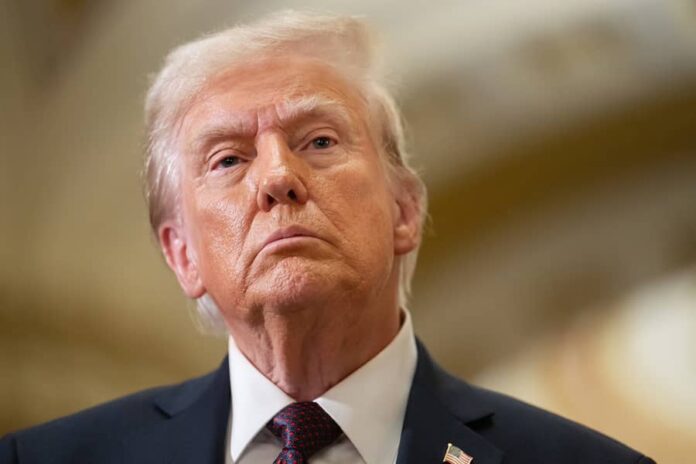NEW YORK — Donald Trump’s sentencing Friday in his hush money case brought some closure to one of the most closely watched criminal proceedings in American history.
Trump has vowed to appeal, meaning legal wrangling is likely to continue over his May conviction by a jury on 34 felony counts of falsifying business records. The case involves$130,000 paid to an adult-film actress ahead of the 2016 election to keep her quiet about claims that the two of them had a sexual encounter years earlier. Trump denies the allegations.
Here’s what Trump’s sentence means and how the matter could play out during his presidency.
Why was Trump sentenced to unconditional discharge?
New York Supreme Court Justice Juan Merchan gave Trump a no-penalty sentence known as unconditional discharge. It’s essentially the most lenient sentence available to the judge, carrying no jail time, probation or fines. Trump had faced up to four years in prison.
Under New York law, unconditional discharge can be imposed when a judge is “of the opinion that no proper purpose would be served by imposing any condition upon the defendant’s release.” Another sentence, called a conditional discharge, can require defendants to participate in rehabilitative programs or meet certain obligations without imprisonment or probation.
Merchan suggested in court that anything more punitive than unconditional discharge would have interfered with the broad protections Trump will receive once he is inaugurated as president on Jan. 20.
He noted that the “citizenry of this nation” had voted to send Trump back to the White House. As such, the judge concluded, unconditional discharge was the only sentence he could give Trump “without encroaching on the highest office of the land.”
Can Trump appeal?
Yes. Trump has made clear that he intends to appeal.
Trump’s appeal would focus on whether legal errors took place at the trial level and would not involve questions of guilt or innocence. After his appellate lawyers and the Manhattan district attorney’s office file their briefs, the court may hold oral arguments, which Trump could attend. If he loses the appeal, the matter could wind its way to the U.S. Supreme Court.
His appeal could move forward after he becomes president, according to Robert Gottlieb, a New York trial and appellate lawyer who also served as an assistant district attorney in Manhattan.
“I don’t see any basis to suggest that it would be stopped during the four years of his presidency,” Gottlieb said. “I take him at his word that he will continue to fight this until the end of time.”
Can Trump pardon himself?
No. Trump will possess broad pardon power as president, but that power doesn’t extend to state crimes.
The governor of New York could pardon Trump, but that seems unlikely. Gov. Kathy Hochul, a Democrat who has criticized Trump, said he would have to show remorse before she would consider pardoning him.
How might this affect Trump’s presidency?
Because of the leniency of the sentence, Trump won’t be burdened by any of the post-sentencing obligations that many criminal defendants face after their cases have concluded. He is the first president-elect or president who is a felon.
Berman reported from Washington. washingtonpost

